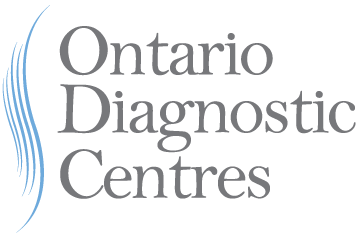Do you feel some inconsistencies with your lungs? You will likely be recommended for a pulmonary function test. Wondering what it is all about? Well, this article gets you covered!
What Are Pulmonary Function Tests?
A noninvasive examination, the procedure fundamentally tells how well your lungs are working. Pulmonary function tests help to measure lung volume, capacity, rates of flow, and gas exchange.
After receiving the detailed information, your doctor will diagnose and decide the treatment plan for your lungs. The ultimate motive is to get them to their normal state of functioning by overcoming any prevailing disorders.
What Kinds of Disorders May Haunt Your Lungs?
Principally, two types of disorders may impact your lungs and cause breathing issues:
-
Obstructive– During the emergence of obstructive disorder, the air has trouble flowing out of the lungs. Symptoms that you may realize include breathing difficulty, cough, mucus production, and wheezing.
-
Restrictive– It results in a decrease in the total volume of air that the lungs could hold. As a result, the lung tissue and chest muscles are unable to expand to their maximum.
When Do You Need a Pulmonary Function Test?
A pulmonary function test may be advised under several scenarios. Sometimes, they can be performed on a healthy individual as a part of a routine checkup.
Presently, PFTs are routinely done in certain work environments to ascertain workforce health. Additionally, if you are enduring ongoing symptoms like coughing, difficulty breathing, or wheezing, you may be a candidate for this evaluation.
You can also be recommended to get a PFT done on an immediate basis during one of the health problems:
-
Allergies-When your immune system gets impacted due to the presence of foreign substances in the environment.
-
Different types of respiratory infections that are troubling you.
-
If you have recently got surgery and have issues breathing.
-
During the advent of lung conditions like asthma, bronchiectasis, emphysema, or chronic bronchitis.
-
A serious lung condition in the shape of asbestosis is experienced due to long-term exposure to fibre material like asbestos.
-
Problems in the form of tumors, inflammation, or scarring of the lungs are leading to restrictive airflow.
-
Scleroderma, a disease in which chronic hardening and tightening of the skin, as well as connectivity tissues, take place.
Under any of the above scenarios, it is vital to take the consultation of a professional right away.
What Happens During a Pulmonary Function Test?
While the way this procedure is conducted may vary fundamentally depending on your condition as well as the healthcare provider’s methods, generally it will include the following process:
-
You will be asked to remove your jewelry or any other thing that might act as a deterrent in the procedure.
-
The staff at the imaging centre is likely to provide you with a gown before conducting the evaluation. This stands to reason: you need to be in comfortable clothes.
-
Once you sit on the chair, a soft clip will be put on your nose. The ultimate motive is that you breathe through your mouth and not your nose.
-
You will also be given a sterile mouthpiece with which you’ll form a tight seal. Additionally, you will be guided on how to inhale and exhale.
-
Don’t worry! During the entire procedure, you are monitored carefully by a team of skilled professionals.
How Do You Need to Prepare for Pulmonary Function Tests
Before the examination, your healthcare provider will brief you in detail about the dos and don’ts. You need to ensure that you take special care of these guidelines without ditching them.
Here are some of the things that you may be asked to implement prior to the PFT:
-
If you take some form of medication, you might be asked to stop them till the test is done.
-
Smoking needs to be overlooked as nicotine can alter the overall results.
-
Don’t take a heavy meal on the day of the evaluation.
-
Consider wearing loose, comfy clothes that don’t squeeze your chest.
-
Avoid any strenuous exercises before the examination.
-
You should also avoid taking caffeine on the evaluation day.
When you take care of the above instructions, you are likely to achieve accurate results from your PFT.
Are There Any Risks Involved in Pulmonary Function Testing?
Pulmonary function testing is a non-invasive procedure and thus pretty safe and quick for most people. In most cases, you will have this evaluation as an outpatient and can go back home the same day.
If you have a history of lung or breathing problems, you might feel tired after the PFT. You may also feel dizzy or lightheaded from breathing so deeply. This is why; it becomes imperative to rest post this test.
Ontdc Gets You Covered
Are you exploring a reliable diagnostic centre in Canada? If yes, look no further as the label Ontario Diagnostic Centres gets you covered.
It is for your information that we have been serving the residents of GTA for a very long time. All our centres have trained radiologists and technologists with immense years of experience.
Additionally, most healthcare providers in Canada suggest patients to ONTDC. It just gives a glimpse of the kind of imaging services we provide.
So, the next time when you are recommended any diagnostic test like Bone Mineral Density, Mammography, Fluoroscopy or any other, allow us to serve you in the best way.

